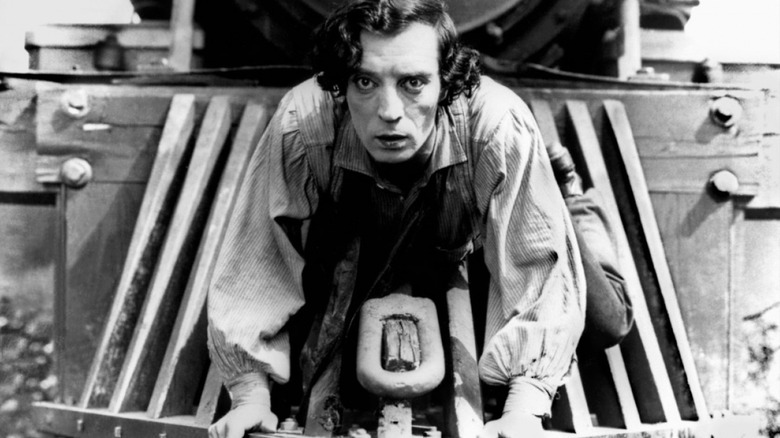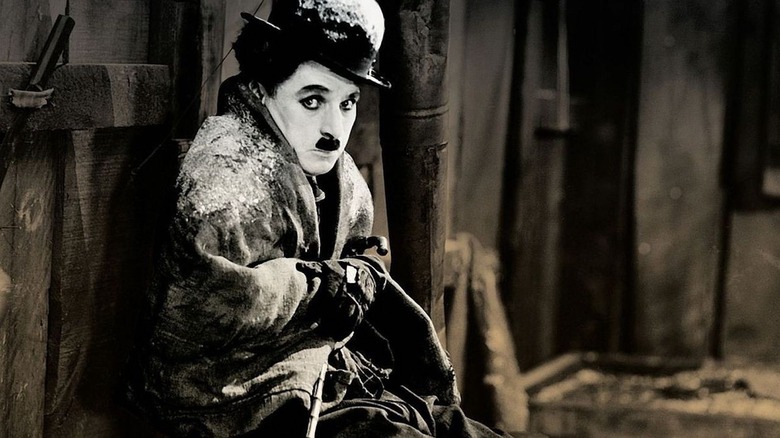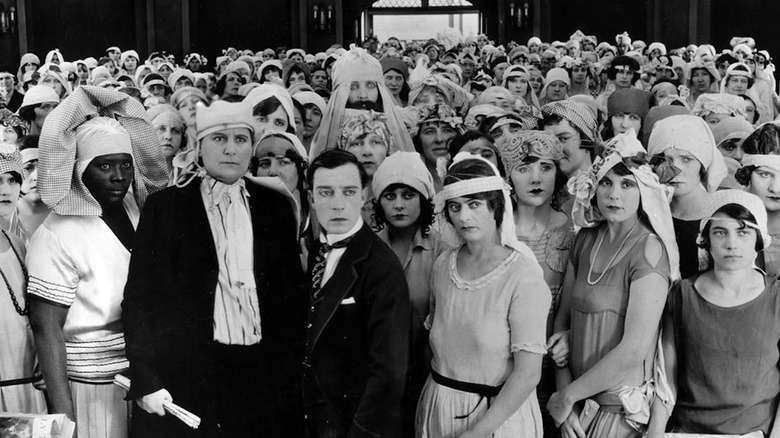Buster Keaton Challenged Charlie Chaplin To A Silent Movie Showdown
In the silent film era, the practice of show-don't-tell was a necessity. People packed movie houses all over the country to see moving pictures, not to read. Obviously, some text was vital, particularly if you were staging a soundless — save for the in-house musical accompaniment — adaptation of Shakespeare or a popular novel. But the purest visual experiences of the pre-talkie era were the films with the fewest subtitles. And these were, of course, comedies.
There were a number of brilliant physical comedians delighting audiences in the early part of the 20th century, but most will agree that the early masters of this medium were Charlie Chaplin and Buster Keaton. Chaplin employed an elegant, sleight-of-hand magic that could touch the heart just as palpably as the funny bone, whereas Keaton earned gasps and laughs as he performed some of the most ingeniously conceived and effortlessly executed stunts in the history of cinema.
Their films didn't require a great deal of explication, but a minimum of text was still crucial to conveying the nuts and bolts of the story. Amusingly, getting away with the fewest number of subtitles sparked a friendly competition between Chaplin and Keaton.
The fine art of not subtitling
In a fascinating 1960 interview with Studs Terkel, Keaton explained in concise detail how subtitling was done in the day of the silents.
"Your lips moved. You spoke. And in the cutting room you'd simply run the film through your fingers down to where you just got your mouth open and on the second syllable, you'd cut, slap in your subtitle, [which] explains what you're talkin' about. And then when you come back, you pick it up just as your mouth is about to close. So that was the way that was."
They preferred, however, to communicate the plot with action, and this is where Keaton's contest with Chaplin came in. The length of films had expanded from five reels to seven, so films were now running anywhere from 75 minutes to an hour and a half. Who was the victor? "I think Chaplin won that," concedes Keaton. "He got done one of his pictures [in] something like 21 titles and I had 23."
Brevity of speech was the soul of silent wit
To give you a sense of what a staggering accomplishment this was, the average number of subtitles in 1925 was, according to Keaton, 240. His parsimoniousness paid off. His 1926 Civil War masterpiece "The General" is still the greatest comedy ever made, and 1925's "Seven Chances," starring Keaton as a bachelor who will inherit $7 million if he gets hitched by 7 p.m. on his 27th birthday, which unfortunately happens to be the day of the will reading.
People who complain old movies are too stagey or talky or whatever nonsense have never seen a Buster Keaton film. Because if your jaw isn't pinned to the floor throughout the entirety of something like "Sherlock Jr.," you are completely incapable of feeling joy.


